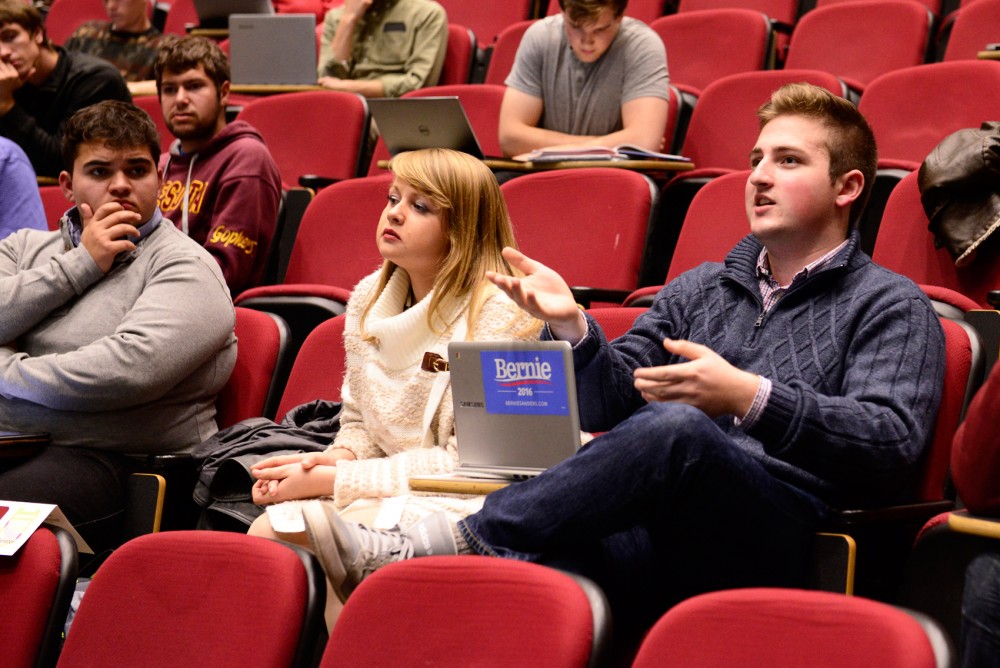The Minnesota Student Association will launch a new fresh food initiative at the University of Minnesota this fall.
Students can register for the Gopher Community Supported Agriculture Program this semester and have weekly boxes of fresh produce delivered to them for a six-week period during the fall.
MSA joined The Good Acre — a St. Paul-based nonprofit that works with local farmers to deliver fresh produce — to plan the Gopher CSA program.
Last November, Will Macheel, a first-year student on MSA’s Sustainability Committee, reached out to the Good Acre to create a campus CSA program.
“I heard about CSA’s before from family members and friends …. it sounded like a very doable thing,” Macheel said.
For the next few months, the Good Acre and MSA worked to create a pilot program adaptable to students. The first year will have room for 50 students.
The Good Acre had a failed attempt to launch a student CSA program at the University last summer, said Anna Richardson, Good Acre’s CSA manager.
“There were a couple challenges we had to consider,” Richardson said of creating the program this time around. “One was the cost of a normal CSA share.”
While a typical share costs $600, the rate for students would be $100.
“This cost can be expensive, even for adults so we had to find a way to make it more affordable,” Richardson said.
When creating the Gopher CSA program, Macheel said they wanted to make sure students receive food they can use.
“It can be kind of daunting for a student to look at a CSA and see foods they are not used to cooking,” Macheel said.
The boxes of produce for the Gopher CSA will include items such as tomatoes, zucchini, carrots, sweet potatoes and apples.
“We tried to create a box that was both desirable to students and includes things that would be easy to prepare and able to be stored through winter,” Richardson said.
This is the first program of its type at the University.
“What community supported agriculture does, is it cuts out food miles,” Anderson said of the perks of having a CSA on campus. “There is value in knowing you are supporting the local system.”
Another obstacle was the length of a CSA program, she said. A usual CSA season starts as students begin summer vacation and runs until October.
“Students don’t need as much food or for as long,” said Good Acre intern and University political science senior Kristen Anderson.
Good Acre and MSA decided to shorten the pilot program to a six weeks.
Starting the first week of the fall semester, students who purchased a share can pick up their 10-pound box of produce at one of the drop-off locations around campus.
The three spots around campus include the Good Acre food hub near the St. Paul campus and the Recreation and Wellness Center.
Richardson said 19 to 20 farms participate in the CSA programs through the Good Acre.
“A really cool thing is that this is raising awareness about where food comes from,” Anderson said.
Still, some are concerned about what happens if weather conditions cause a bad growing season.
“As a shareholder and a member, you assume some of the risk,” Anderson said.
Boxes may vary in quality and quantity by season, but Richardson said that could be educational.
“You are saying to the farmers that we support you in good times and bad times,” Anderson said, adding most years the CSA program delivers quality produce.
“It is exciting to bring fresh fruit and produce for a very reasonable price to the student body,” Macheel said.








